How Hong Kong's Cantopop scene went from heartbreak to protest
- Published
Hong Kong's Cantopop has been given a new boost of creativity by singers who aren't afraid to get political
Like many Hong Kongers I grew up singing along to syrupy Cantopop ballads, both loving and hating their catchy and often bizarre lyrics.
"I know I'm someone impossible to please
I was just lucky to experience a moment of love at all
Looking back, taking an honest look at myself
Am I really so annoying that you hate me so much?"
That's Used to Losing Love by Joey Yung. In one of the city's many karaoke centres, you will hear people crooning about love, anger, making money - as well as lots and lots and lots of heartbreak.
Cantopop - short for Cantonese pop - is formulaic, intensely emotional, strangely addictive and quintessentially Hong Kong. Now it is also becoming political.

Cantopop groups such as Twins, who performed the song "love is bigger than the sky", dominated much of the 2000s
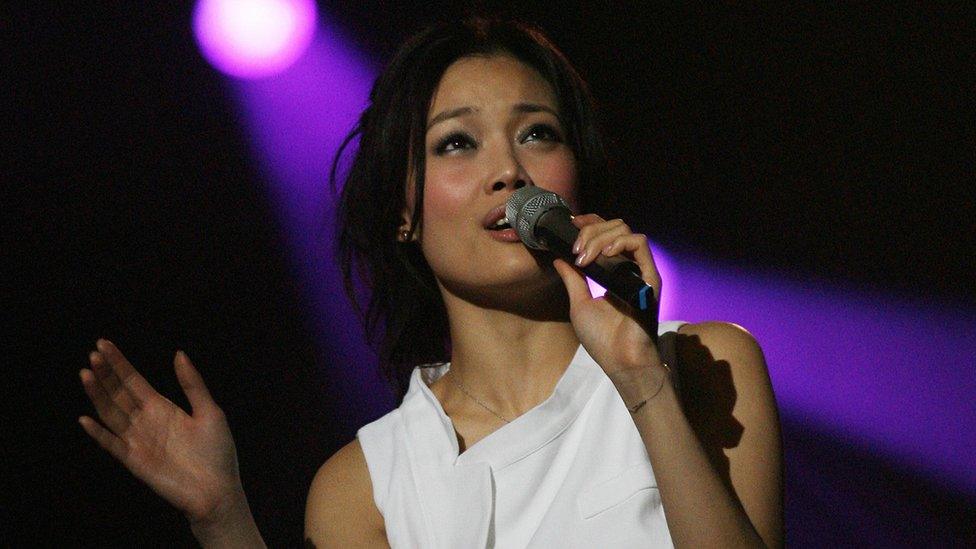
Joey Yung, who sang "Used to losing love", is one of the most prominent Cantopop stars today
It used to be a multi-million dollar industry, with massive followings in mainland China, Taiwan, Malaysia and South Korea as well.
But experts say revenues have plunged in recent years and that singers are facing both increased competition and pressure to self-censor from China.
"The Cantopop industry of Hong Kong is suffering… so singers have to turn to the mainland Chinese market," says Adrian Chow, a songwriter and music manager. "If you touch on any sensitive issues, the mainland market will try to suppress you."
He cites the examples of singers Denise Ho and Kay Tse, who have both come under pressure for supporting Hong Kong's 2014 pro-democracy protests.
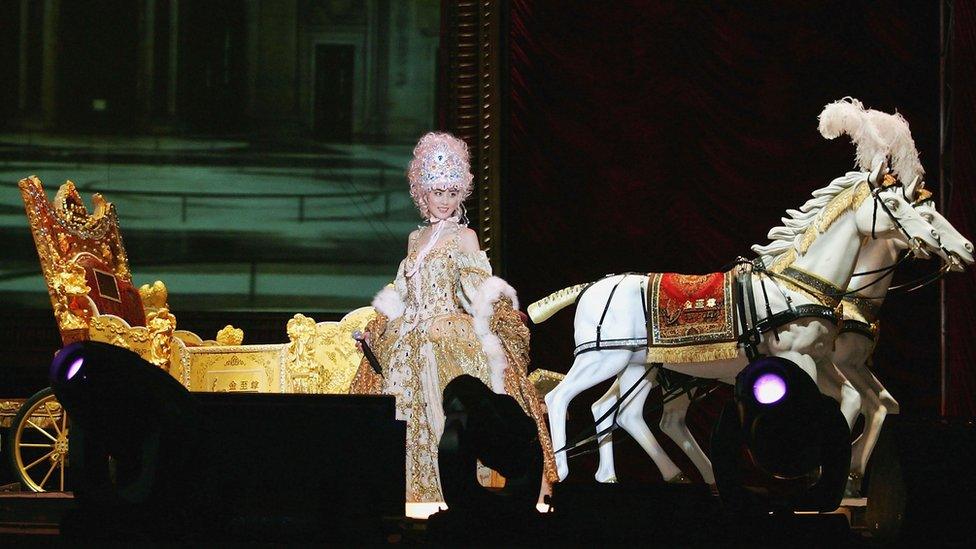
Expect eye-catching outfits at a Cantopop concert...
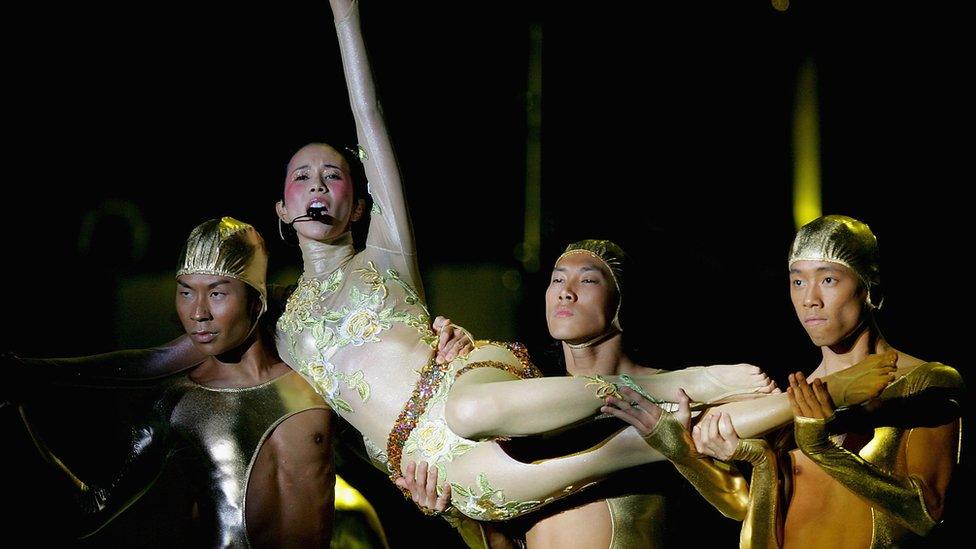
... and big dance troupes
Ho had a concert by Lancome cancelled earlier this year, after the beauty brand came under fire from mainland Chinese fans, and state media, who criticised Ho's political stance.
And pop singers are also facing competition from increasingly popular music stars elsewhere in Asia.
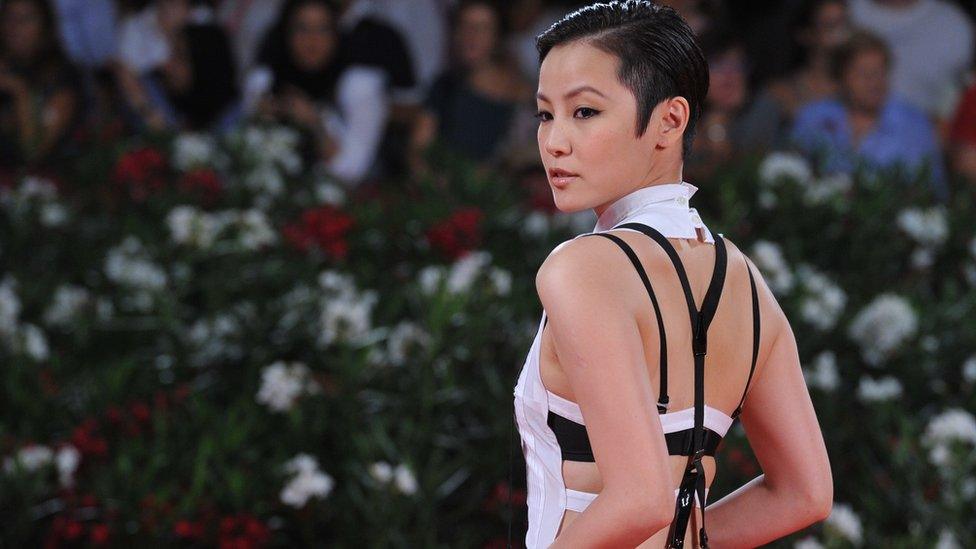
Denise Ho's support for pro-democracy protests, and the Dalai Lama, have angered Chinese media
Rise of K-pop
Brian Chow, a DJ with local broadcaster RTHK, says: "Cantopop, purely in terms of popularity, has been overshadowed by Mandopop [Mandarin-language pop songs]."
"The number of choices for people has expanded," and the rise of Korean pop (or K-pop) across south-east Asia is also "a huge challenge".
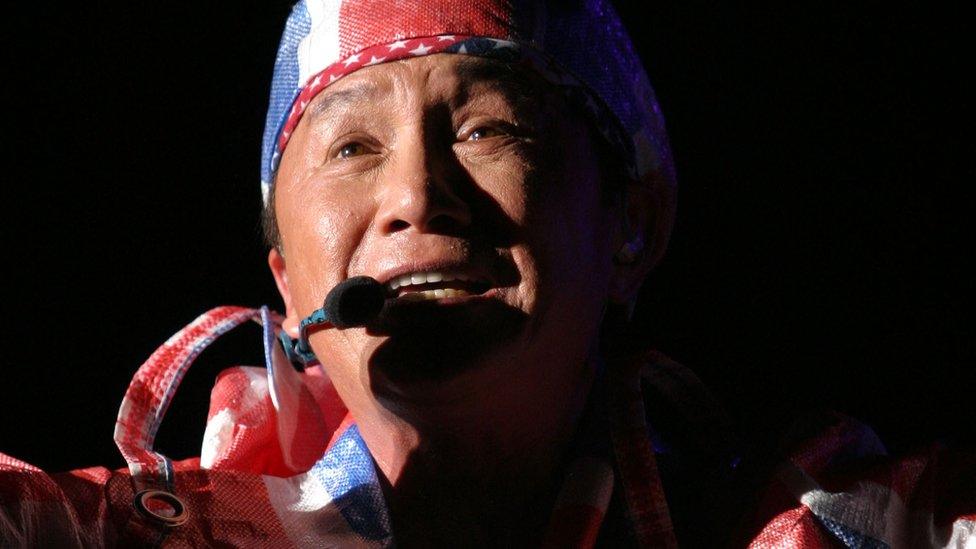
Sam Hui, known as the "father of Cantopop", swept to fame in the 1970s with songs about the working class and making money
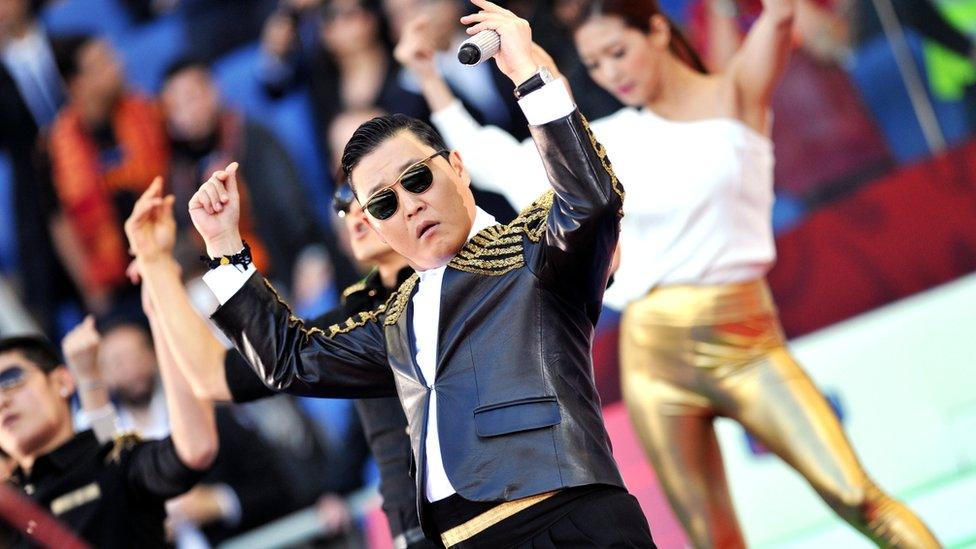
Now, Korean pop is popular South East Asia - and much of the rest of the world
Industry experts say Cantopop record sales have plunged by more than 70% since their peak. Cantopop digital sales also fell by 14% between 2014 and 2015, according to Elton Yeung, CEO of the Composers and Authors Society of Hong Kong (CASH).
But there is an unexpected silver lining.
"In the past, most of the popular songs tended to be love songs. The market was quite commercial," Brian Chow says.

Kay Tse is known to sing about diverse issues, including the plight of the homeless and the experiences of Filipino domestic helpers
"But now the popularity of the genre is lower, it's not just about commercial considerations anymore - and this has boosted creativity."
Protest songs
Adrian Chow's song Egg and Lamb, external was inspired by the film Twelve Years A Slave, but was widely interpreted to be about Hong Kong, and rapidly became one of the anthems of the 2014 pro-democracy demonstrations.
"There are more and more songs touching on political issues, or at least social issues… because Hong Kong people can really feel that politics is affecting their daily lives," he says.
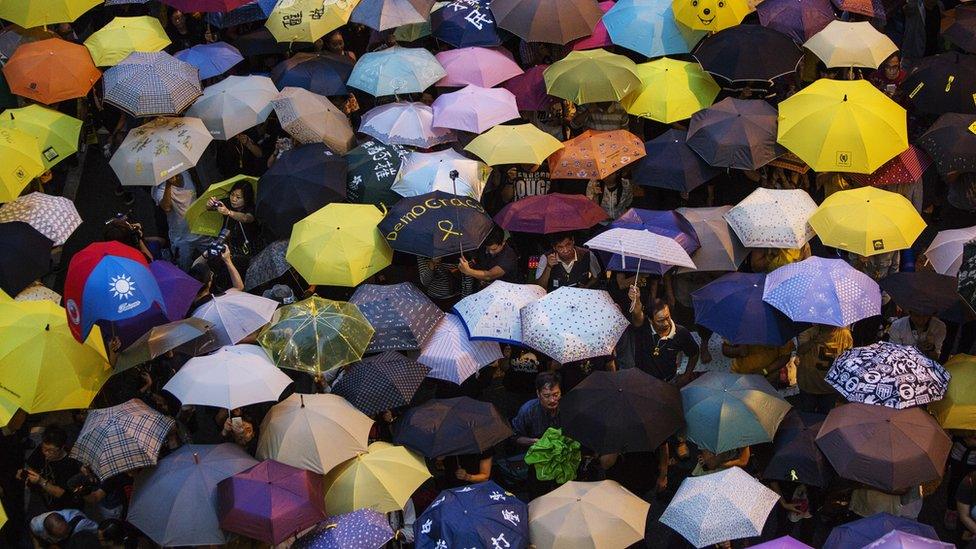
Umbrellas became a symbol of the 2014 pro-democracy protests
So overtly political songs have become popular with the public too.
One song written in support of the 2014 pro-democracy protests, Raise Your Umbrellas, external, was voted the most popular song of the year at the Commercial Radio music awards.
"Ten years ago, young people thought Cantopop was cheesy," says Ruby Choy, a music industry veteran.
But now, they "are caring more and more about local Hong Kong culture… and using Cantopop to write satirical songs."
In January an online TV platform, TVMost held a mock awards ceremony, external for satirical songs it had written about current affairs - it even attracted sponsorship from Shell.

Online parodies, including this one about stressed students, have been a hit
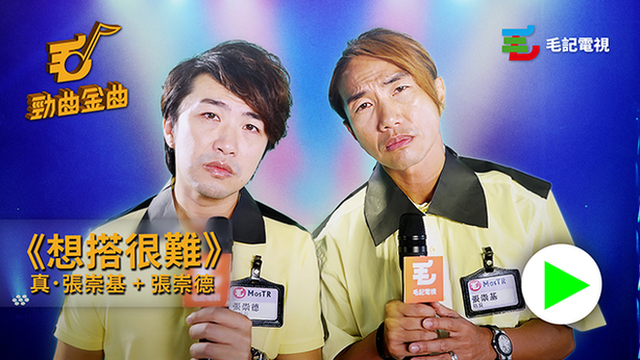
Hard to Board looks at controversies linked to Hong Kong's trains
Hits featured included:
Chased By A Breast, external, about a court case where a female protester was convicted of assaulting a police officer with her breast
Hard To Board, external, about the difficulties of riding on the city's trains, and controversies over mainland Chinese visitors
"This was one of the most important cultural events this year," Ms Choy says.
"In the last century, Cantopop could never afford to associate itself with socio-political issues - it was a taboo. But today, things have changed."
Nine-tone language
Fung Wai Tong, head of RTHK's Chinese programmes, says Hong Kong's political situation means "many people have a greater sense of empathy with Cantonese songs" than before.
"Cantonese is the mother tongue of most Hong Kongers, so having songs in a language they understand directly is really important to them."
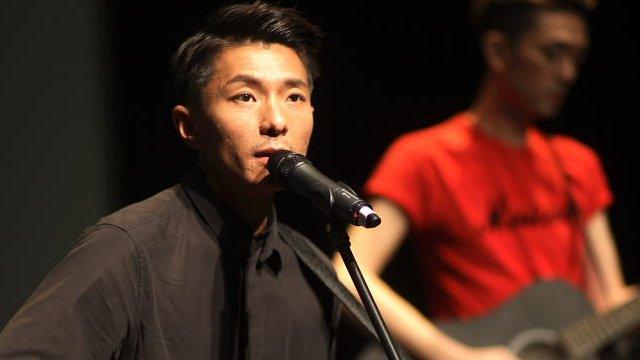
Endy Chow performed in Hawaii as part of a campaign to introduce Cantopop to international audiences
And supporters say Cantopop is particularly unique, given that Cantonese is considered one of the hardest languages to learn.
"There's a particular challenge to writing good song lyrics because Cantonese has nine tones - it takes skill to match the lyrics to the notes," says Endy Chow, a pop singer.
He and Ruby Choy have been involved in a campaign, Hong Kong is Singing, external, to promote Cantopop overseas.
But it could be that Cantopop is taking on a distinctly "indie" flavour with more independent artists and a more dynamic music scene.

Denise Ho's latest concert is completely crowdfunded
An example Adrian Chow gives is Denise Ho's latest solo concert - which, after her previous problems with Lancome, she arranged through a crowdfunding campaign.
"She tried to find hundreds of small sponsors, from local shops and commercial entities in Hong Kong… and together, it became a large enough sum for her to organise a solo concert," he says.
Tickets to all four of her shows have sold out - and, on Facebook, external, Denise Ho's fans have been equally excited about music and the fact she pulled off a crowdfunded concert independently.
"Of course we'll applaud till the very end! Go go go!" user Ginny Lee enthused.
"It's a concert full of love, full of hope, full of unity. Everyone has done great," Cola Ho wrote.

Perhaps Cantopop's bubble hasn't burst just yet
In some ways, it's no surprise that such an emotional music genre has ended up taking on other subjects close to Hong Kongers' hearts.
Whether it's heartbreak, making one's fortune or uncertainty about the future, Cantopop has always found a way of resonating with and expressing how the people of the city feel.